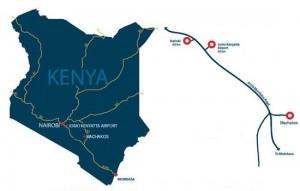
On March 1, 2017, Kenya's Machakos County launched its first family planning costed implementation plan (2017-2021). The plan lays the groundwork for family planning prioritization, coordination and budgeting in the county, and will help guide resource mobilization efforts. Machakos was motivated by the achievements of neighboring counties, which have also developed costed family planning strategies with Advance Family Planning (AFP) support.
World Provision Centre (WPC), a local civil society organization and Opportunity Fund recipient, worked closely with the Machakos County Department of Health and Emergency Services to develop the plan. The Opportunity Fund, managed by PAI with funding from AFP, is a small grants program that helps advocates seize opportunities to accelerate Family Planning 2020¹s success at district, state, national, and regional levels. WPC¹s strategy was borne out of AFP¹s "Fostering Locally-Driven Advocacy for Family Planning" workshop in January 2016 and continued to receive mentorship from AFP local partner Jhpiego Kenya.
The plan aims to increase the county¹s modern contraceptive prevalence rate from 68% to 83% and reduce the unmet need for family planning from 24% to 10% by 2021. The total cost to implement the plan over five years is 352 million shillings (approximately US $3.4 million).
While Machakos has relatively strong family planning indicators compared to the national average, WPC saw a need for a concerted strategy to improve family planning interventions, particularly in rural areas. WPC leveraged the county government¹s prioritization of health to advance this effort. From the onset, WPC obtained strong buy-in from the County Health Management Team to shepherd the plan¹s development process, and also gained endorsement from the County Executive Committee Member, the County Director of Health, and the Chief Officer of Health.
As part of its strategy, WPC supported the County Health Management Team to establish a family planning technical working group to help guide the plan¹s development and implementation. The technical working group is comprised of civil society, youth groups, women¹s groups, faith leaders, and government representatives from across health, education, and disability sectors.
Originally slated for December 2016, the launch was delayed due to a doctors and nurses¹ strike. Nevertheless, at the launch in March, the costed implementation plan received strong support from executive and legislative stakeholders. During his speech, Dr. Jacks Nthanga, Chief Officer of the Department of Health and Emergency Services, remarked that because of the plan, ³never again a matter as important as family planning funding will be left to guess work.²
As a next step, WPC will continue to advocate for the creation and utilization of a dedicated family planning budget line in the 2017/2018 budget‹one of the objectives of the plan.

